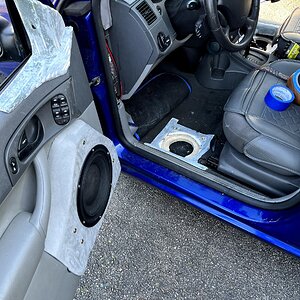dudadiesel
Junior Member
I am looking for some clarification on the advantages or disadvantages of the hybrid capacitors. I see "Capacitors" and then "hybrid Capacitors" for sale. The hybrids tend to be the higher capacity units and cheaper per farad than the "capacitors."
I've tried calling a few car audio places and so far all I've gotten is that hybrids are "better" which is not very satisfactory to me. When I hear hybrid, I think that there is a combination of battery and capacitor involved, which may be why their capacity is higher but of course, this would mean the release of that capacity is slower. Am I on the right track with what I think the hybrid is? One tech guy told me that "normal capacitors" actually have fluid in them. A capacitor would normally have 2 conductors separated from an insulator, which is what makes it a capacitor. Why would there be any fluid in them at all?
Any knowledge on the difference in the two would be appreciated. I'm building a new car audio system which will have an upgraded alternator, a power cell big enough to handle the system, and my idea is to have the capacitor to make sure that I can give the amp whatever current it needs when the big thuds go off (and the power cell may not be able to discharge fast enough to supply that maximum power). Naturally, I do not want to go with hybrid if it's going to have any slower of a discharge than normal capacitors.
I've tried calling a few car audio places and so far all I've gotten is that hybrids are "better" which is not very satisfactory to me. When I hear hybrid, I think that there is a combination of battery and capacitor involved, which may be why their capacity is higher but of course, this would mean the release of that capacity is slower. Am I on the right track with what I think the hybrid is? One tech guy told me that "normal capacitors" actually have fluid in them. A capacitor would normally have 2 conductors separated from an insulator, which is what makes it a capacitor. Why would there be any fluid in them at all?
Any knowledge on the difference in the two would be appreciated. I'm building a new car audio system which will have an upgraded alternator, a power cell big enough to handle the system, and my idea is to have the capacitor to make sure that I can give the amp whatever current it needs when the big thuds go off (and the power cell may not be able to discharge fast enough to supply that maximum power). Naturally, I do not want to go with hybrid if it's going to have any slower of a discharge than normal capacitors.


